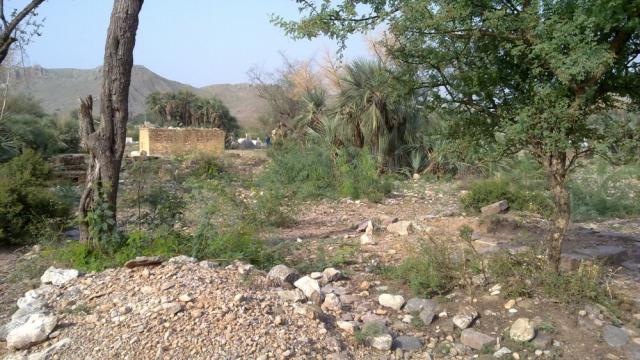
PESHAWAR, Pakistan — Despite its meager resources and destroyed infrastructure following years of armed conflict, the Khyber Pakhtunkhwa (KP) province of Pakistan is now spending millions of dollars on a more far-sighted project: the country’s largest ever tree planting campaign.
Known as the "Billion Tree Tsunami Project," the initiative aims to offset the country’s shrinking forest cover while soaking up climate changing carbon dioxide from the atmosphere. At a cost of $150 million, the project is underway in all 25 districts of the province under the Green Growth initiative, in which 1 billion saplings are being planted.
The gigantic effort is part of a 2013 commitment by Pakistan Tehreek-e-Insaf (PTI), the ruling party in the province, which felt that too little attention was being paid to the country's shrinking forest system. Saplings produced in thousands of private nurseries are now being distributed free of cost to the masses and planted everywhere. The planting is being carried out on both active and abandoned farmland, degraded terrain, and in forests to fill the gaps created by years of deforestation.
The Billion Tree Tsunami aims to increase Pakistan's forest area by 2 percent through the annual conversion of 30,000 hectares of land into forest.
Due to chronic lack of resources in the province, there have been delays in funding the project although the KP government has assured that the initiative will be carried out in full. “This is a landmark project in the history of our province,” said Mushtaq Ghani, the provincial information minister, who said the government has so far spent more than $70 million.
Pakistan's Shrinking Forest Cover
Hills in the northern areas of Pakistan are known for their endless stretches of pine and fir forests, though they have been the target of illegal logging for decades. According to the Forest Department's research and development team, Pakistan's forest density been reduced by 74 percent. Aside from continuous logging, smuggling and land erosion have also played a role in deforestation.
The KP province burns $75 million of wood annually, which comes from the country's mountainous areas. According to a World Bank study, the country's forest cover in 1990 was 3 of the national total, and is now below 1.9 percent. That compares with the United States, where the forest cover is roughly 33 percent of the total land area, and India where it has climated from 21 to 23 percent of its total area.
Abdullah Khan, a divisional forest officer in KP, said forests cover 20.3 percent of the province, which itself makes up 40 percent of the total forest cover in the country. The goal of the Billion Tree Tsunami is to increase provincial forest cover to 22.3 percent. Khan added that the program has been designed in a way that will create jobs, empower youth and women, and mitigate climate change while also helping to contain soil erosion.
Specifically, jobs are being provided at thousands of private nurseries where the saplings are being grown. The government then "purchases" the saplings from those nurseries, and pays individuals to plant the trees. “The local people have been given millions of saplings to plant them along the agriculture fields,” said Muhammad Tahmas Khan, who is monitoring the plantation project in Peshawar district. “The trees will be ready within five years and will gave them huge revenue.”
He said that the project is being implemented in three phases, the first phase of which started in December 2015. So far, 3,910 tree "enclosures" have been set up and more than 54 million saplings distributed to people nationwide.
There has been criticism in local media about the selections of trees for areas which are facing water shortage issues, as well as lack of proper care for saplings planted in mountainous areas. Tahmas Khan said that mostly eucalyptus trees are being planted in agriculture areas, and that the demand for this tree is high because it grows quickly and has been successful in the region.
"Every tree counts,” said Professor Dr. Inam Ullah Khan of the University of Agriculture Peshawar. He said the project could have durable results even if only half of the saplings are successful. With carbon pollution remaking our planet's atmosphere, more organized efforts like this are need to draw CO2 out of the air, Ullah Khan added. “We need billions of trees for the war against polluted air and to counter climate impacts.”
The project has been recognized by the Bonn Challenge, a global partnership that aims to restore 150 million hectares of the world’s deforested and degraded lands by 2020, and was also recognized at the COP21 as one of the planet's leading forest restoration efforts.
3 WAYS TO SHOW YOUR SUPPORT
- Log in to post comments











